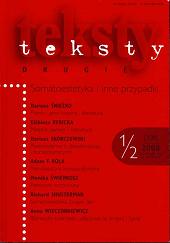

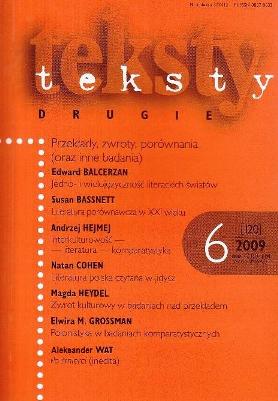

Keywords: Ciuleandra; madness; personal drama; individual alienation; criminal mind;
Published in 1927, a product of Romanian modernism, Liviu Revreanu’s novel Ciuleandra is an inquiry into personal drama and individual alienation. Originally titled Nebunul (The Madman), the novel investigates the abyssal zone of the criminal mind revealed in the course of a post-murder psychological investigation.
More...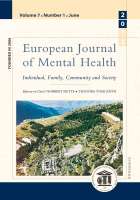
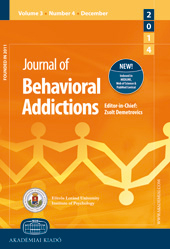
Keywords: appetitive motivation; myths; work addiction
This commentary intends to provide constructive input into the “Ten myths about work addiction” by Griiffiths et al. (2018). I place the information into an appetitive motivation theoretical lens of addiction as well as outline the kernels of truth associated with each myth. Advancement of an understanding of the underlying mechanisms of addiction demands consideration that any number of appetitive-associated behaviors might become disrupted – including those at the workplace.
More...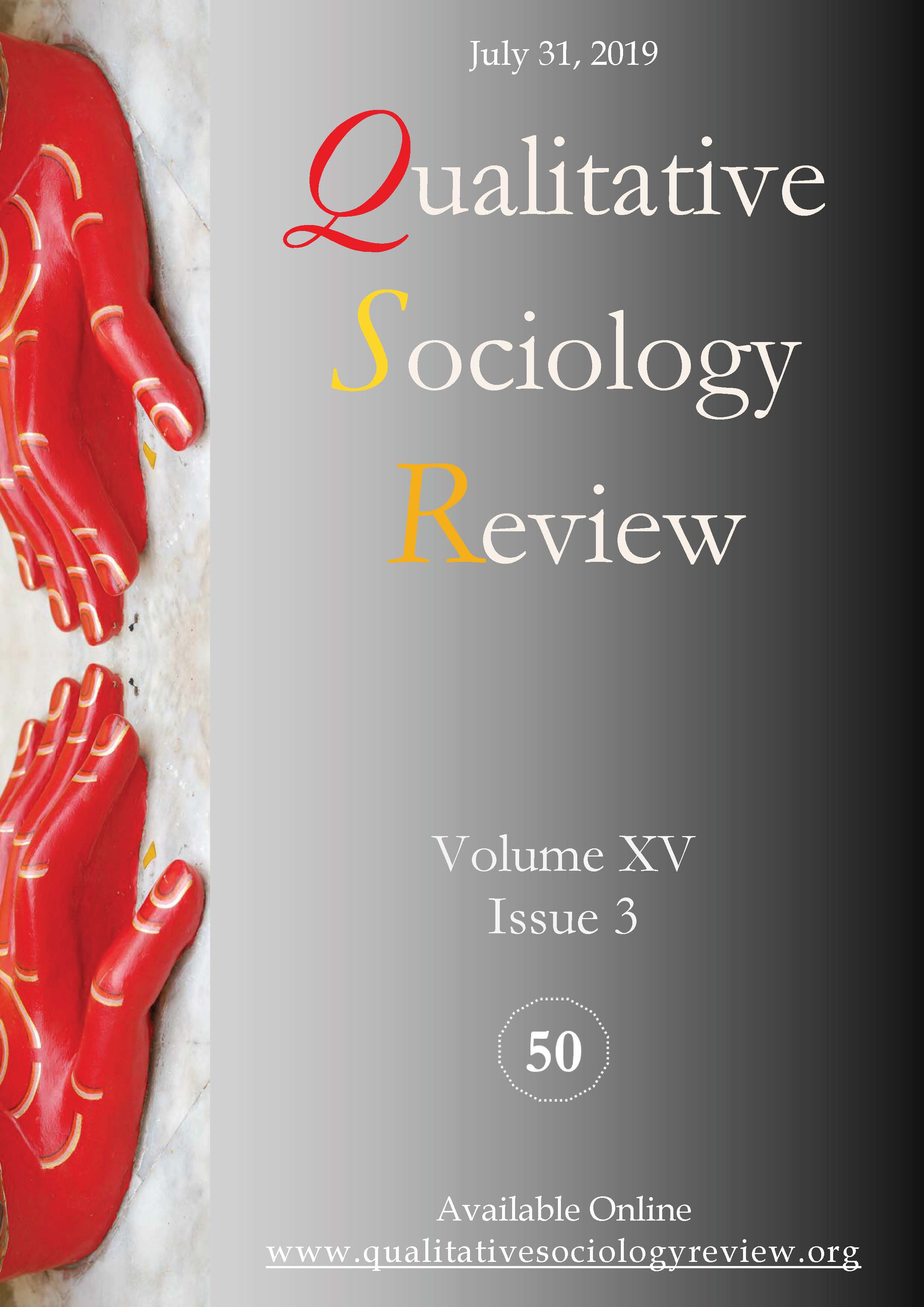
Keywords: Contemplation;Meditation;Creativity;Grounded Theory;Phenomenology;Serendipity;Qualitative Research;Ethnography
I would like to present the possibility of broadening the traditional methodological and technical skills of researcher and analyst, but also the intellectual capacity of the researcher associated with combining data, categorizing, linking categories, as well as the interpretation of the causes and consequences of the emergence of certain social phenomena. Some methodologies, methods, and research techniques are more conducive to creative conceptual and interpretive solutions. Therefore, I describe the serendipity phenomenon in such methodologies as grounded theory, ethnography, phenomenological research, and contemplative inquiry. The problem of intuition in qualitative research will be also described in the paper. There will be presented also some suggestions how to be creative in qualitative research.From the review of issues of creativity in qualitative research we can derive the following conclusions:Creativity in qualitative research depends on the strength of a priori conceptualization and stiffness of the adapted methods of research and analysis.If the methodology is more flexible (as the methodology of grounded theory), the researcher can get to phenomena that he/she has not realized and which are still scantily explored in his/her field of expertise.The phenomenological and contemplative approaches allow the use of the investigator’s feelings and experience as they appear in the studied phenomena, which usually does not take place in objectifying and positivistic research.The investigator may therefore consciously use these methodologies and approaches that foster creativity.The researchers can improve their skills in thinking and creative action by doing some methodical exercises (journal writing, writing poetry as a summary of the collected data, the use of art as representation of the phenomenon, the use of meditation, observation of the body feelings, humor, etc.).
More...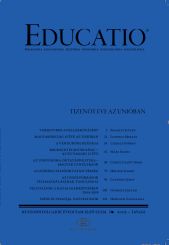
Jonathan Sandoval (ed.): Crisis Counseling, Intervention, and Prevention in the Schools. (Third edition.) (Consultation and Intervention in School Psychology Series.) New York, London, 2013 [1988]. Routledge. xii + 393 p. ISBN 978-0-203-14585-2 (eBook)
More...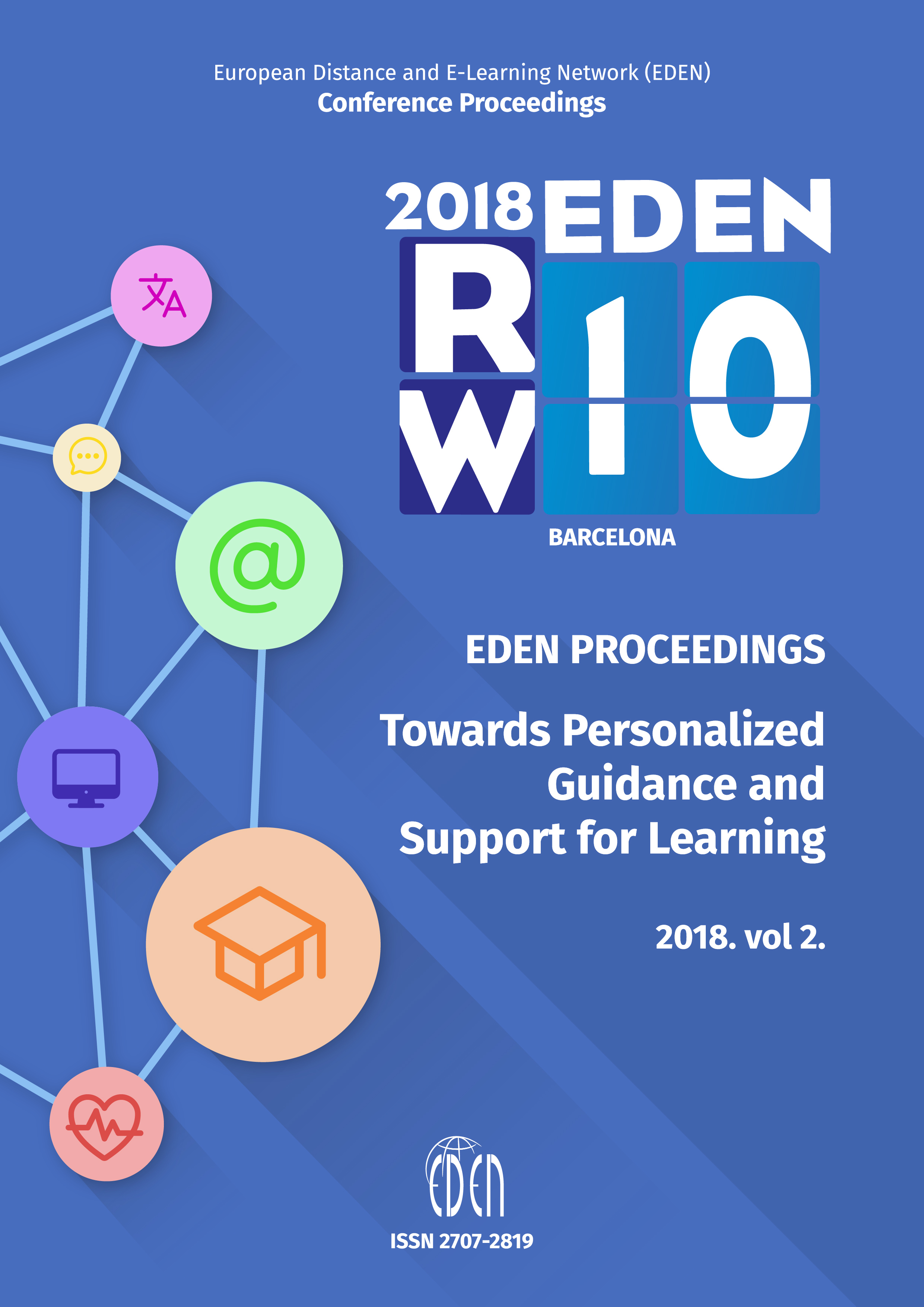
Keywords: Lifelong learning; Learner needs and motivations; Tutoring; Student support
The results of credible research on learning do not readily make it to the classroom; neither does it easily translate into useable strategies to guide and support learning. Solid, reputable and valid research on learning is often inaccessible to practitioners, while simplified research results are prone to become what is referred to as “Neuromyths”. To assist in the quest for personalized guidance and support for learning, the article is based on Schema Theory. A schema is a mental framework humans use to represent and organise remembered information. Schema Theory demonstrates effective learning as knowledge construction by building and expanding mental schemata, rather than merely information transmission.The article starts with the mystery in my story – an auto-ethnographical reflection on my personal journey with learning. Learning is not something abstract – it is something that develops over time, thereby creating mental schemas. That is what the narrative highlights. This is followed by discussing pitfalls to learning, namely pervasive Neuromyths. Effective learning is then brought into the picture – it can be developed, based on reputable research. Therefore, an overview of some studies on learning is given. In doing this, there is the realization that this field is so vast and so complicated, that it is easy to drown or become lost in the difficult-to-understand details. Therefore, I developed a logical scaffolding framework called The Golden Spiral of Life-long Learning, which has two major characteristics. The first characteristic is that it is emulating the learning journey, namely the way learning actually takes place. As such, even primary school children can understand and follow it. The second characteristic is that it is scalable, in the sense that it is robust enough that even specialists in the field of the scholarship of learning can use it as a scaffolding framework to organize their knowledge of the field – which in itself is a characteristic of effective learning. To show that this is the case, the framework is used to make sense of postings from two web pages devoted to promoting effective learning, namely MindShift and TeachThought.com, each with a following of more than 800 000 subscribers. The postings are based on, and refers to reputable research, but the postings have been popularised for the sake of understanding. The conclusion is that structured and guided mental schema-building is an indispensable strategy for personalised guidance and support of learning, not only by teachers, but also for students to whom this strategy should be modelled and taught.
More...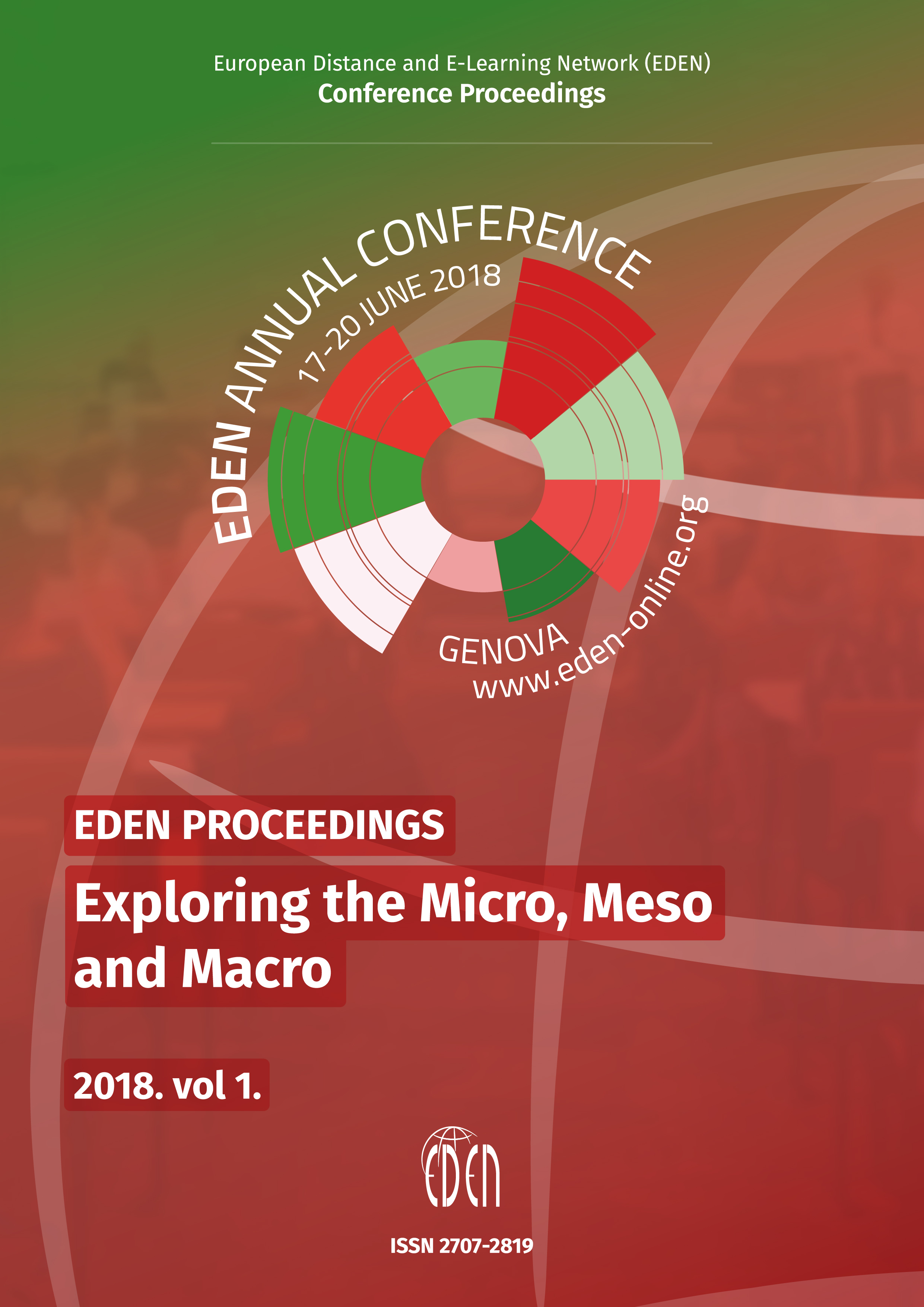
Keywords: Cultural context of e-learning
Distance Education provides education for students spread over the whole of earth, in all time zones, on every continent, in every country. That is at once an exceptional strength of Distance Education, as it is one of its biggest challenges. The strengths are that it brings knowledge and education within reach of all peoples. The challenge is that it needs to consider the aspect of culturally meaningful learning.
More...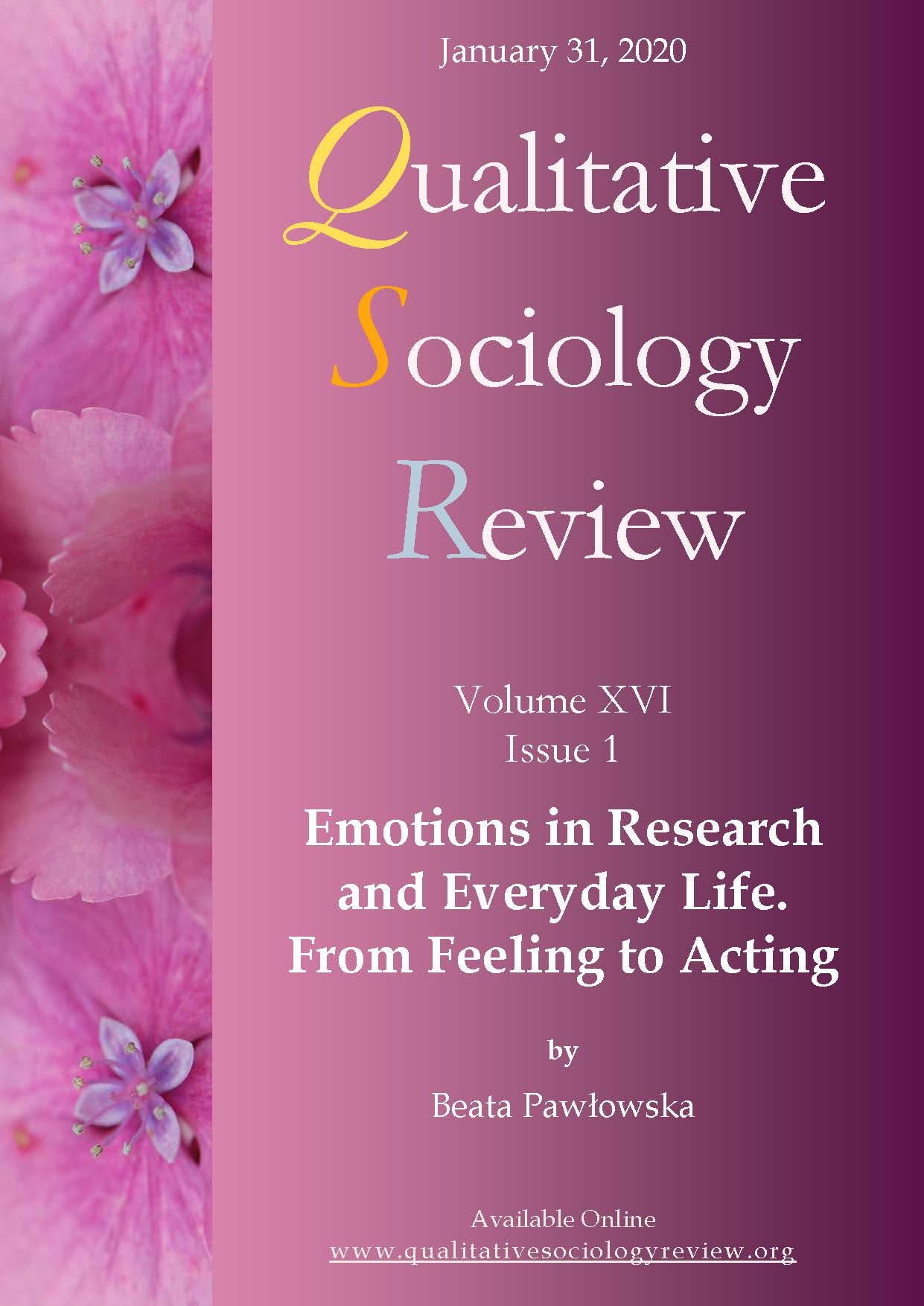
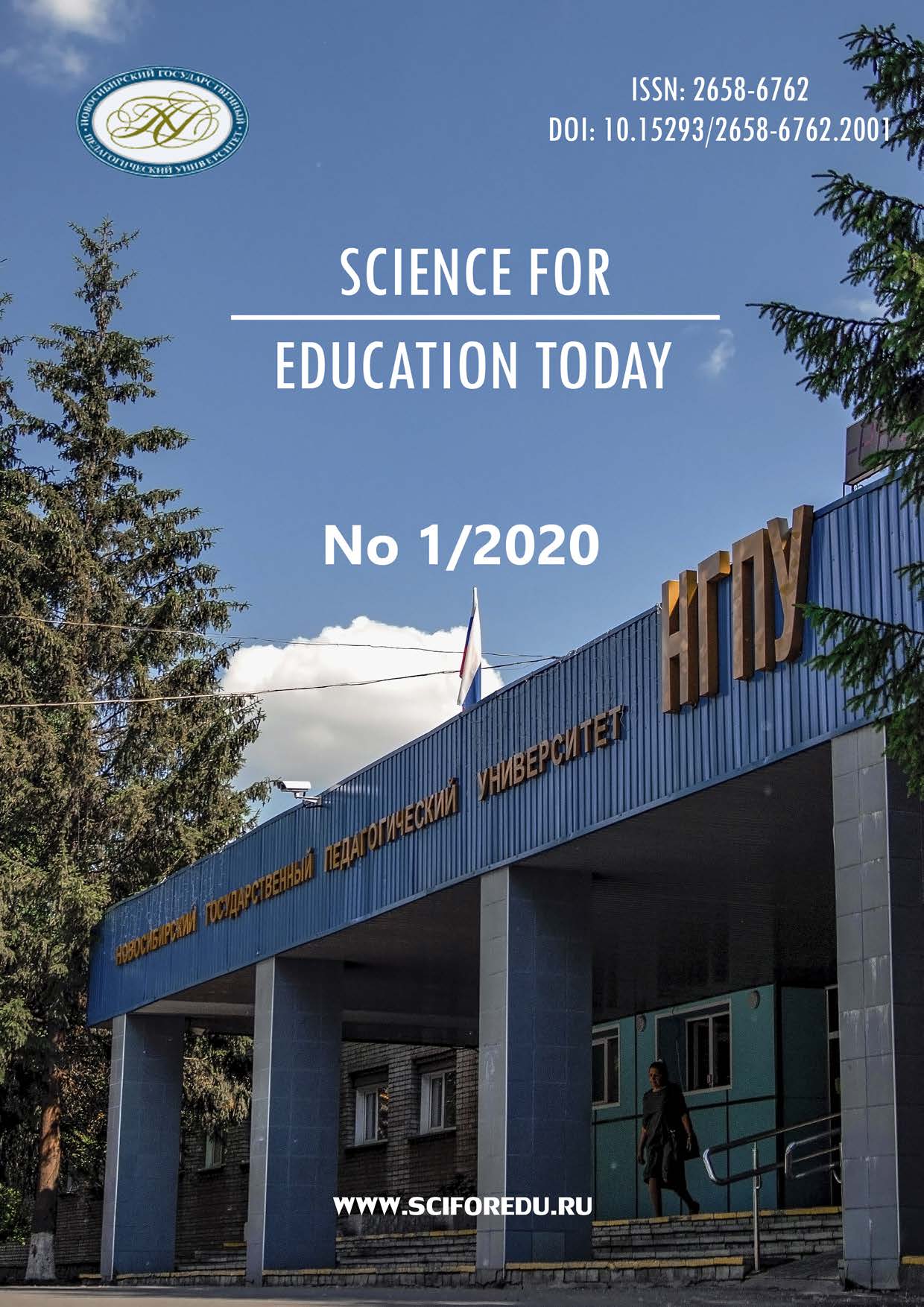
Keywords: Academic staff; Middle-aged women; Stress resistance; Health-promoting exercises; Yoga;
Introduction. The authors study the problem of enhancing stress resistance of women academics. The purpose of the research is to analyze the effects of health-promoting exercises with yoga elements on women academics’ stress resistance in their middle adulthood. Materials and Methods. An empirical study was conducted from February to June 2018 at Astrakhan State University. The study sample consisted of 60 women academics, the average age was 41 ± 2 years. Their teaching experience was between 16 and 30 years. The effectiveness of health-promoting exercises was assessed using the following methods: E. S. Ivanova’s ‘Stress-FIE questionnaire’ aimed at identifying the main types of stress and T. A. Nemchin’s ‘Tools of measuring neuropsychiatric stress’. The data were analyzed using mathematical statistics methods. Results. The authors measured the stress resistance of women academics as well as developed and implemented a complex of exercises with yoga elements. The effectiveness of the proposed set of exercises was evaluated. The study proved positive changes in stress resistance indicators. The authors emphasize that the yoga technique is characterized by low intensity and maximum concentration on the final result of exercises, as well as focusing on the rules of performing exercises (sequence of actions and breath control). Conclusions. The study found a positive impact of health-enhancing exercises with yoga elements on women academics’ stress resistance.
More...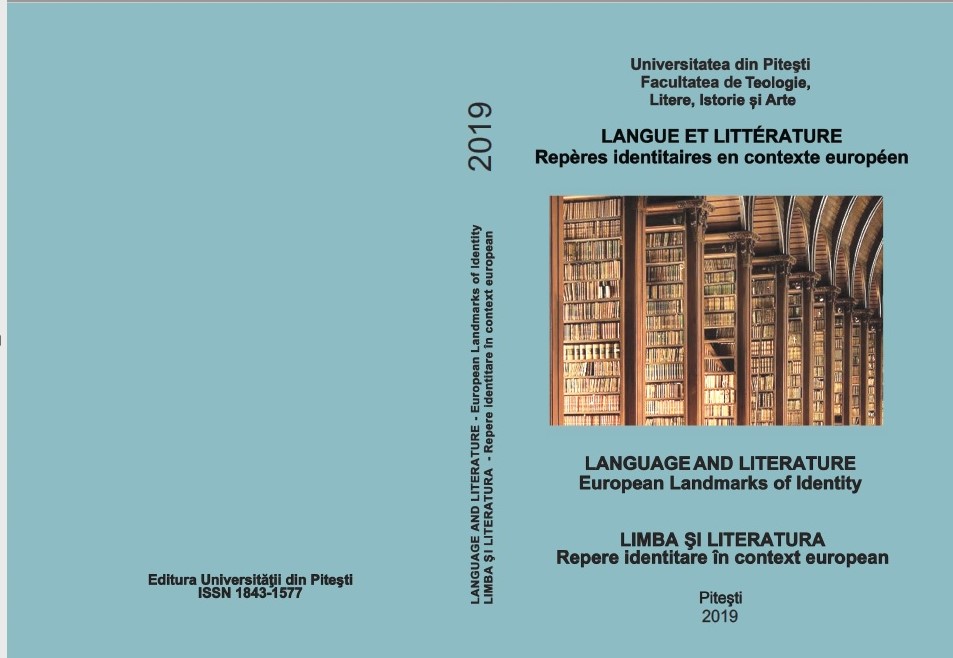
Keywords: sense of humor; irony; effective didactic communication;
In the educational environment, more than in the general human interaction, the messages must be productive: besides using the same code, the discourse must meet other criteria in order to reach the target represented by the student-receiver; in this regard, the transmitter should turn to a whole arsenal of techniques for drawing attention and always find the most appropriate persuasive approaches. Emotional response occupies an important place in this context, as communication must be primarily a relationship and then a vehicle of resources that one wants to share with others. In fact, the super communicator teacher would be the one who designs and carries out all of his activity by ensuring effective communication that is in line with the real needs of his students: well-structured and well transmitted. This paper brings into the readers’ attention the means by which good sense of humor can enhance good didactic communication.
More...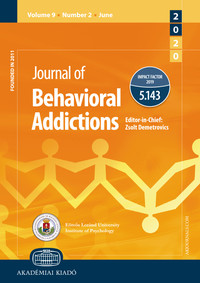
Keywords: cognitive-behavioral therapy; motivational interview; online intervention; problematic pornography use; wise social-psychological intervention
The past-year prevalence of problematic pornography use (PPU) was 1–6% in adult populations. As a result of treatment obstacles and barriers, such as unaffordable treatments, only a minority of problematic pornography users may seek treatment. Having a free, online, self-help program may overcome treatment barriers and may help those individuals who cannot receive traditional or offline treatment for PPU. Although the effectiveness of such online programs reducing substance use and problematic gambling have been reported, no prior study has examined the efficacy of an online self-help intervention aiming to reduce PPU. Methods. This two-armed randomized controlled trial (RCT) will examine the effectiveness of an online self-help program (Hands-off) to reduce PPU, while also considering psychopathological comorbidities. The six-week intervention condition includes six core modules developed to reduce PPU based on motivational interviewing, cognitive behavioral therapy, mindfulness, and wise social-psychological intervention techniques. The target sample size is 242 participants. Self-report questionnaires will be administered at baseline, right after the end of the intervention, at one-month, and three-month follow-ups after the end of the intervention. The primary outcome will be the level of PPU. Secondary outcomes will include pornography use frequency, pornography craving, pornography use-avoidance self-efficacy, sex mindset, sexual satisfaction, negative and positive emotions, and life satisfaction. Data will be analyzed on an intention-to-treat basis using linear mixed models. Results will be reported at conferences and published in a scientific peer-reviewed journal. The participants will be sent a lay-person-friendly summary of the results via e-mail.
More...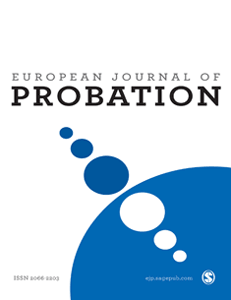
Keywords: Innovation; mobile technology; rehabilitation; treatment;
This article examines developments in mobile technologies that target the treatment and support needs of offenders in the community, and sets out three challenges that must be addressed if these interventions are to become part of the correctional programs environment. These are: how to identify good quality mobile applications that will yield genuine benefits for practitioners and service users; how to adapt forensic treatment approaches to work effectively in a mobile application environment, and how to make mobile applications available to forensic clients and motivate people to use them. Until these challenges are addressed the potential value of mobile technologies in providing greater access to forensic treatment will not be realised.
More...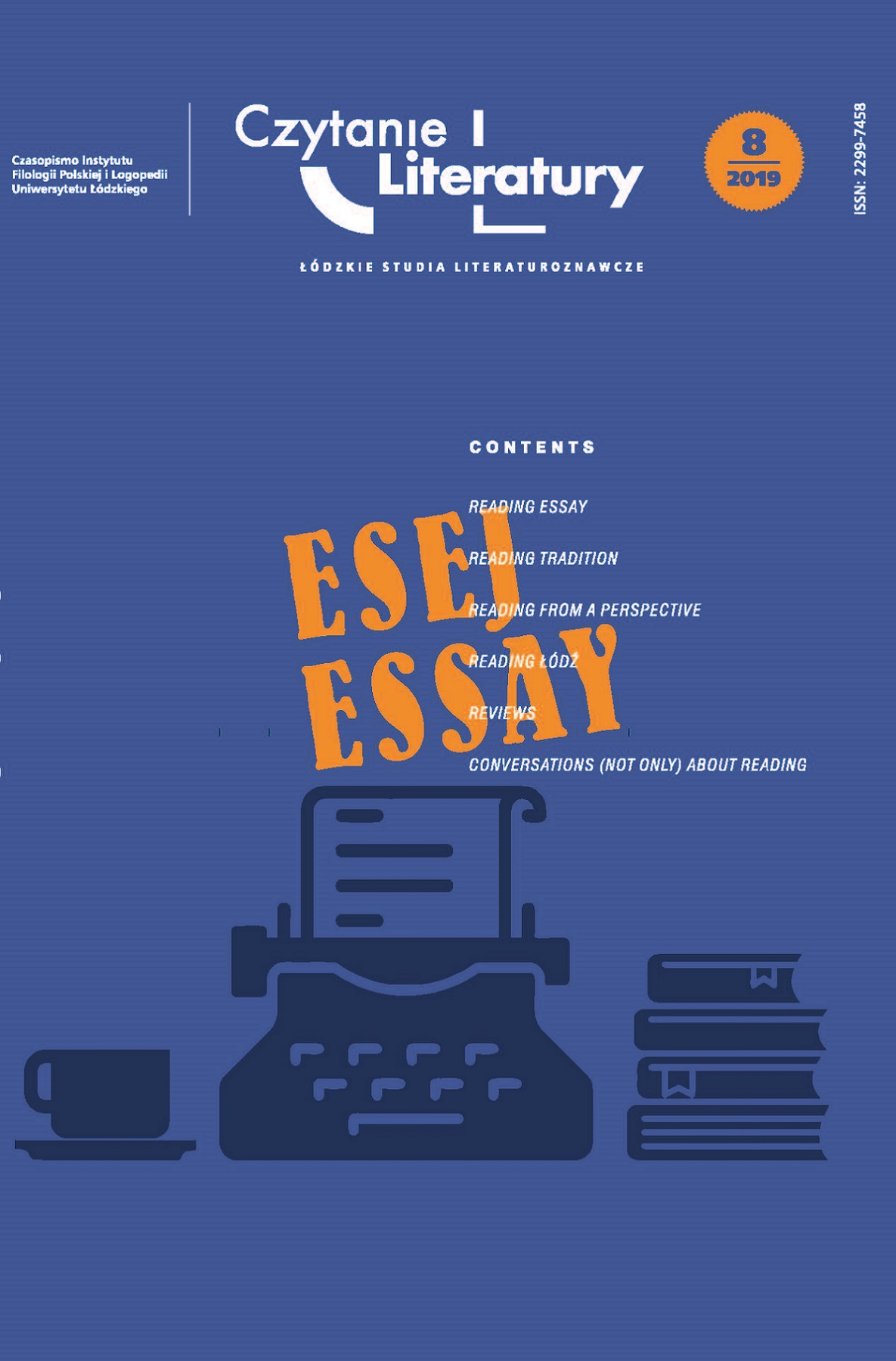
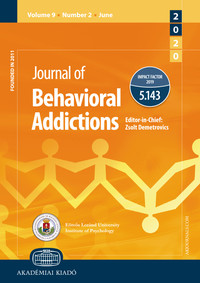
Keywords: adolescents; compulsive sexual behaviour; desire thinking; impulsivity; negative affect; thought suppression
Background. Desire thinking is a voluntary cognitive process that involves the perseverative focus on memories, images and information related to a desired target. The aim of the present study was to validate the Hebrew version of the Desire Thinking Questionnaire (DTQ; Caselli & Spada, 2011) in a sample of adolescents and to investigate its relationship with measures of thought suppression, impulsivity and individual-based compulsive sexual behaviour. Methods. In Study 1, a convenience sample of 718 adolescents completed the newly translated Desire Thinking Questionnaire in Hebrew (DTQ-H) and results were subjected to an Exploratory Factor Analysis (EFA). In Study 2, a convenience sample of 379 adolescents completed a battery of questionnaires including the DTQ-H. A Confirmatory Factors Analysis was performed on the DTQ-H and validity was ascertained by correlating with other measures. Results. In Study 1, a 9-item two-factor structure was identified. A 6-item two-factor structure was confirmed in Study 2. Results also indicated that the DTQ-H has acceptable levels of reliability, and good concurrent and incremental validity in predicting compulsive sexual behaviour. Conclusions. The 6-item DTQ-H appears to be a reliable and valid measure of desire thinking and may be used also on adolescents – an understudied population.
More...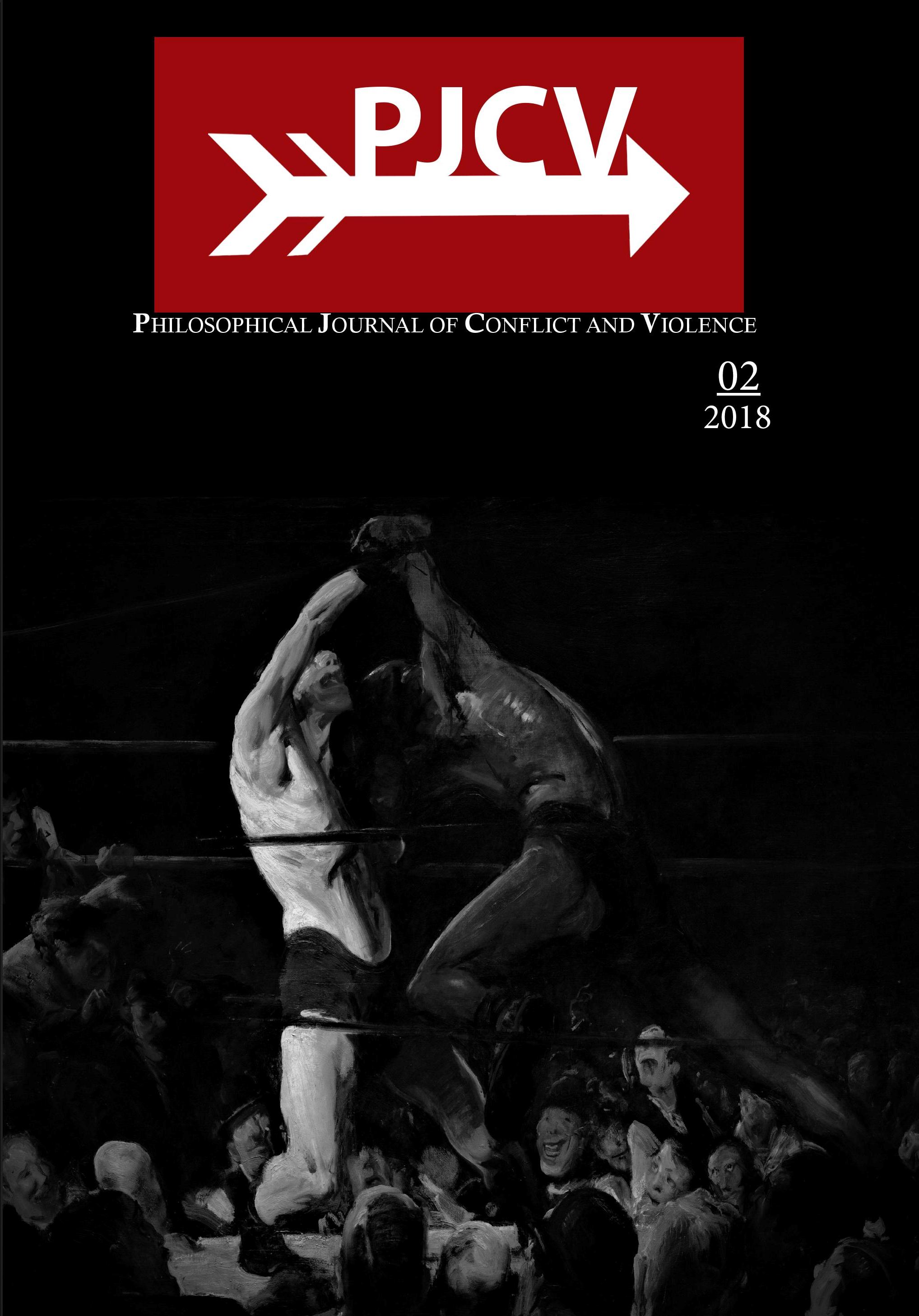
Keywords: René Girard; Brian Massumi; Bushido; Christianity; Samurai; Suffering; Violence; Virtue;
This paper takes up the question of the place of martial arts in a Christian response to violence. In light of René Girard’s mimetic theory, how can, or should a person of faith consider the practice of martial arts for the purposes of self-protection? This paper will respond to the question by showing that, Girard’s theory situates humanity in the realm of an intermediary process awaiting the consummation of the kingdom of God. We shall discover that we are ‘on the horn of a dilemma’ in having to contend with the excesses of unremitting violence and the deficiencies of cowardice. A surprising compliment to Christian ethical behaviour can be found in the Eastern martial arts, which will be more closely observed through the traditions of Japanese samurai culture. We shall discover that virtue can be found in self-defence through a balance of Christian principle and martial art practice, which promotes peace and harmony in a sin-riddled world.
More...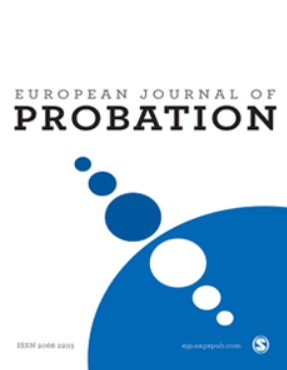
Keywords: Brain development; cognitive-behavioral program; Effective Practices in Community Supervision; officer training; parole; probation; racial equity; recidivism; specialized unit; trauma informed;
The aim of this article is to propose an overhaul in how young adults (approximately aged 15–25 years) should be supervised in the community while serving probation or parole sentences. Using a pilot model implemented in the Pacific Northwest in the United States, we describe the development of a new specialized caseload focused on the developmental needs of this age group. Once established, an ambitious training program using external subject matter experts was used to educate supervising officers and integrate best practices across four emerging areas in the literature: trauma informed care, brain development science, an Equity and Empowerment Lens with a racial justice focus, and the case management approach Effective Practices in Community Supervision. Results show the potential of this approach to change the trajectory of the life course of participants, as well as promote systematic and systemic reform in the participating jurisdiction.
More...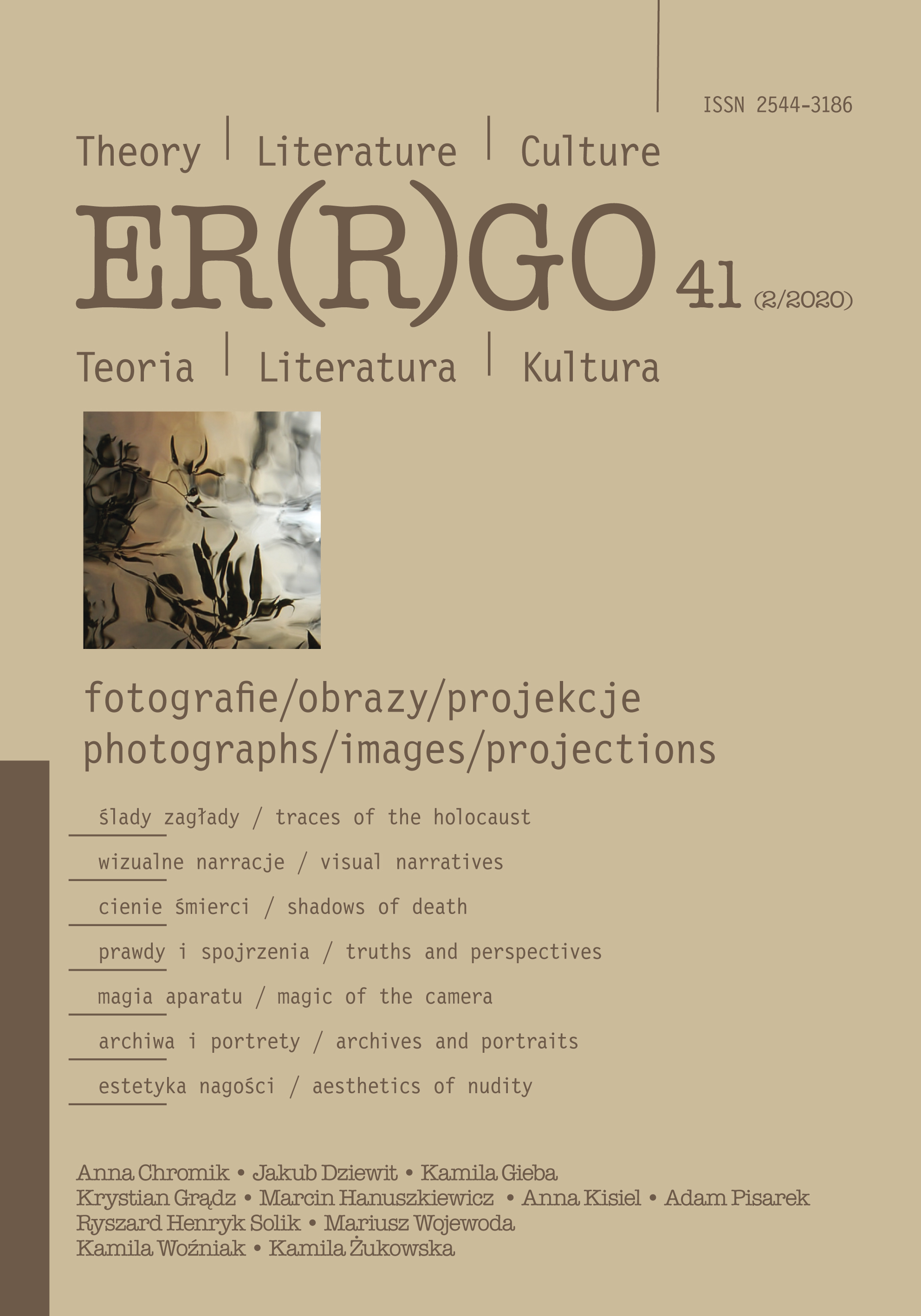
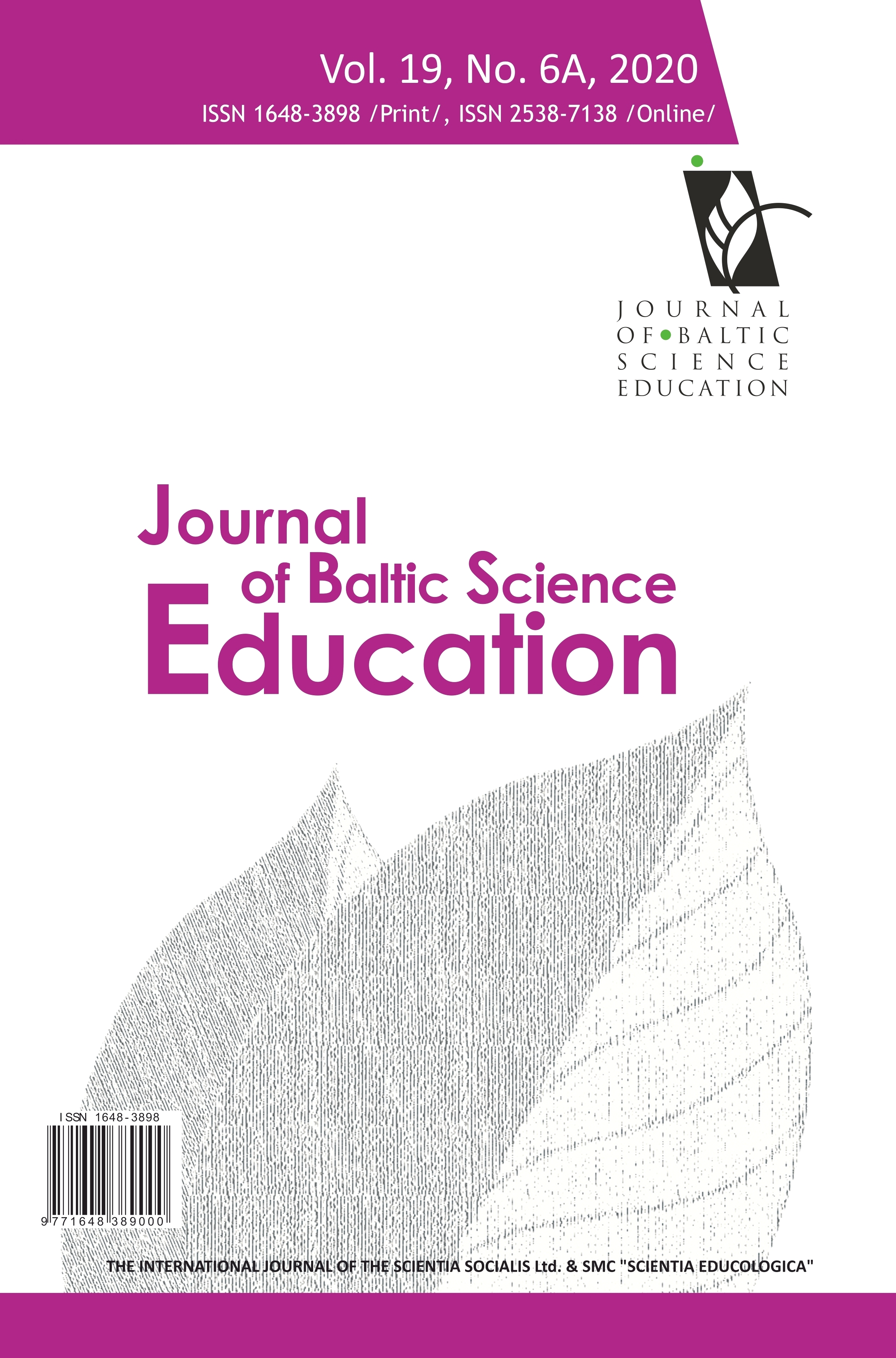
Keywords: mental health; well-being; progressive education; psycho-social issues; coping strategies;
The 2020 pandemic led to the immediate lockdown of schools and universities worldwide with far-reaching implications for educators and learners. Individual stories of lockdown and isolation are documented using direct quotations from discussion forums, emails, live chats, and structured journal entries from the Blackboard learning management system. A ‘qualitative sense’ of a common narrative of turmoil and success within this ‘new [ab] normal’ is established. Educators’ contrasting accounts of uncertainty and hope are highlighted. The notion of anticipatory anxiety as a result of social lockdown restrictions is covered in terms of its impact on mental health and wellbeing, with special reference to the neuroscience that underpins this phenomenon. Strategies for the management of stress-related autonomic nervous system activation, as well as for building resilience and coping skills in classrooms, are highlighted, along with the need to address issues of cognitive dissonance and fatigue caused by increased online/blended teaching demands during uncertain times. The online format was found to be potentially impersonal and cold without the essential ‘human factor’. Despite technology in education there has to be human and social interaction, as well as support online. The most benefit was derived from live sessions and social interaction.
More...